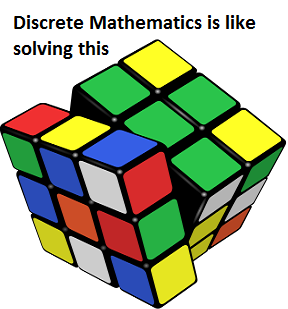Need Discrete Mathematics Assignment Help
Discrete mathematics is a branch of mathematics that deals with countable, distinct, and separate objects. Unlike continuous mathematics, which involves concepts such as real numbers and continuous functions, discrete mathematics focuses on structures that are countable and often involve integers or other countable sets. Discrete mathematics is essential in various fields, especially in computer science and information technology. It provides the theoretical foundation for algorithm design, data structures, cryptography, and other aspects of computing. Additionally, discrete mathematics has applications in telecommunications, operations research, and various branches of engineering. Its focus on countable structures and logical reasoning makes it a powerful tool for solving problems in a wide range of disciplines. We have experts who can provide you best discrete mathematics assignment help so that you can get success in your life. Discrete mathematics assignments cover a wide range of topics and problem-solving exercises. Depending on the specific course and level of study, assignments may vary in complexity and scope. Here are some common types of assignments that you might encounter in a discrete mathematics course:
Set Theory Assignments:
- Defining sets and set operations.
- Finding the intersection, union, and complement of sets.
- Applying set identities and laws.
- Solving problems related to Venn diagrams.
Logic Assignments:
- Constructing truth tables for logical expressions.
- Simplifying logical expressions using laws of logic.
- Proving logical equivalences.
- Applying logical reasoning to real-world scenarios.
Relations and Functions Assignments:
- Identifying and classifying relations (reflexive, symmetric, transitive).
- Finding the domain and range of functions.
- Determining whether a function is injective, surjective, or bijective.
- Solving problems involving composition of functions.
Graph Theory Assignments:
- Constructing and analyzing graphs.
- Finding paths, cycles, and connectivity in graphs.
- Applying graph algorithms such as depth-first search and breadth-first search.
- Solving real-world problems using graph models.
Combinatorics Assignments:
- Counting principles, including permutations and combinations.
- Applying the pigeonhole principle.
- Solving problems related to binomial coefficients.
- Analyzing and solving problems involving combinations and arrangements.
Number Theory Assignments:
- Solving problems involving divisibility.
- Finding greatest common divisors (GCD) and least common multiples (LCM).
- Applying modular arithmetic to solve problems.
- Exploring properties of prime numbers.
Probability Assignments:
- Calculating probabilities of events.
- Applying probability distributions.
- Solving problems involving conditional probability.
- Using probability in real-world scenarios.
Boolean Algebra Assignments:
- Simplifying Boolean expressions.
- Constructing truth tables for Boolean functions.
- Designing logic circuits using Boolean algebra.
- Applying Boolean algebra to solve digital circuit problems.
Algorithm Design Assignments:
- Analyzing algorithm complexity using Big-O notation.
- Designing algorithms for specific problems.
- Implementing algorithms in a programming language.
- Analyzing the correctness of algorithms.
Proofs and Mathematical Reasoning Assignments:
- Constructing and writing mathematical proofs.
- Applying proof techniques such as direct proofs, proof by contradiction, and mathematical induction.
- Analyzing and critiquing mathematical arguments.
These assignments are designed to reinforce the theoretical concepts learned in discrete mathematics and develop problem-solving and critical-thinking skills. They often require a combination of mathematical reasoning, logical deduction, and sometimes programming skills. It’s important to carefully read and understand the assignment prompts, follow a systematic approach, and seek help if needed to master the material. These examples highlight the interdisciplinary nature of discrete mathematics, as its principles and techniques find applications in diverse fields, contributing to the advancement of knowledge and the development of practical solutions.
Discrete mathematics plays a crucial role in the theoretical foundation of computer science and information technology. It provides the mathematical tools and concepts necessary for algorithm design, data structures, cryptography, and the analysis of algorithms and systems. Additionally, discrete mathematics has applications in various other fields, including operations research, engineering, and telecommunications. Whether you are pursuing graduation or post graduate degree or even when you need it for office purposes, Our experts is the best answer for discrete mathematics assignment help.
Author: Ask Assignment Help
Connect with Ask Assignment Help for urgent assignment help, online exam help, dissertation writing service & online coursework help for all subjects. Order now to get 25% off on all assignments now.

